Profession Ban: Situation with Press Freedom in Kazakhstan
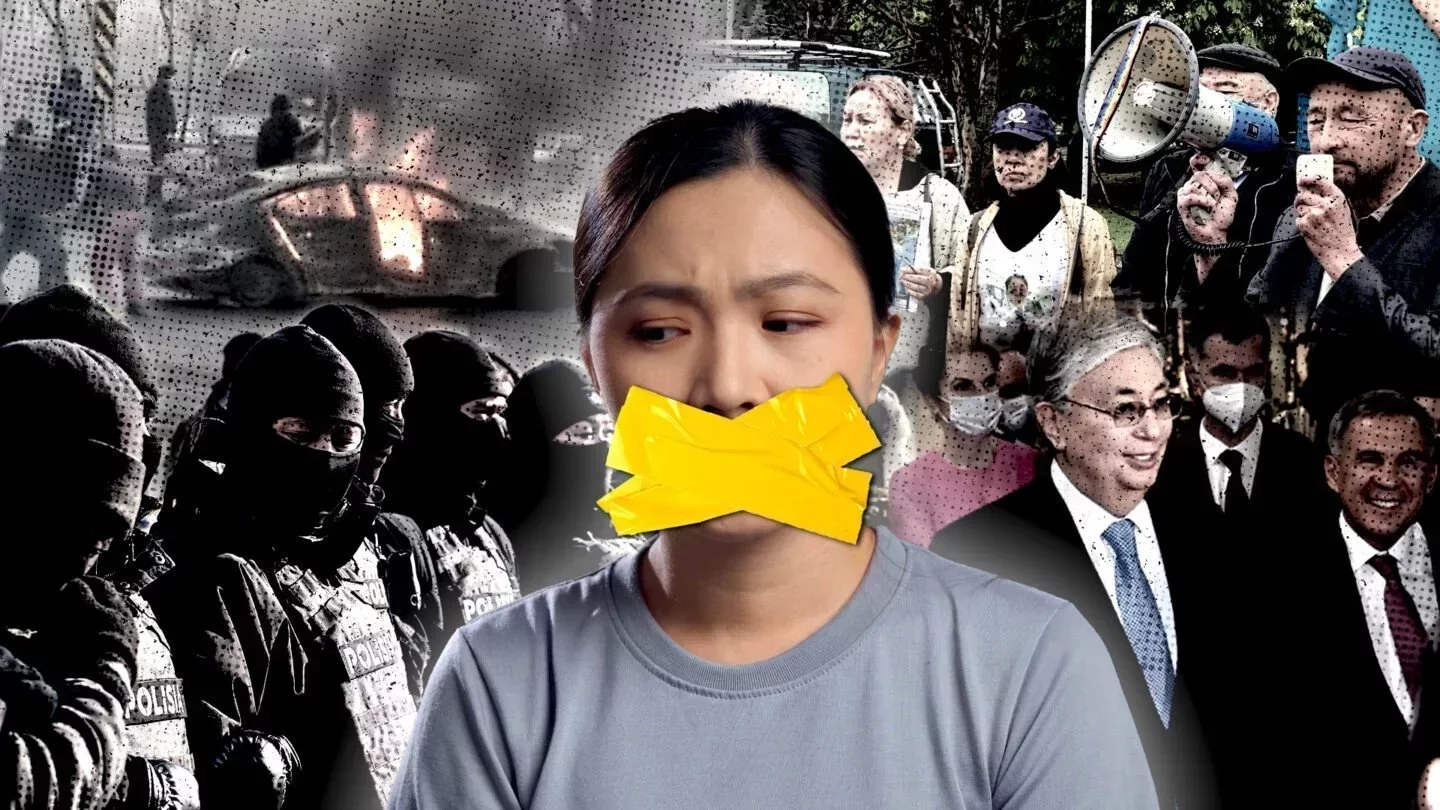 Collage: Orda.kz
Collage: Orda.kz
Kaznet is rife with videos of journalists chasing down officials with their questions in corridors. Officials often dodge answers any way they can, demonstrating their detachment from reality. They do, however, give balanced answers, clear explanations, and essential clarifications on specific issues at times.
This reluctant mechanism has long been operating, and, most importantly, it has supported dialogue between the people and the state. But the situation is changing, and not for the better.
In recent years, civil servants have gradually narrowed journalists' opportunities. Obstacles are gradually being created with justifications such as safety regulations or creating convenient working conditions for journalists who had made no such request. Orda.kz has compiled a chronology of the gradual restrictions on the work of journalists in Kazakhstan.
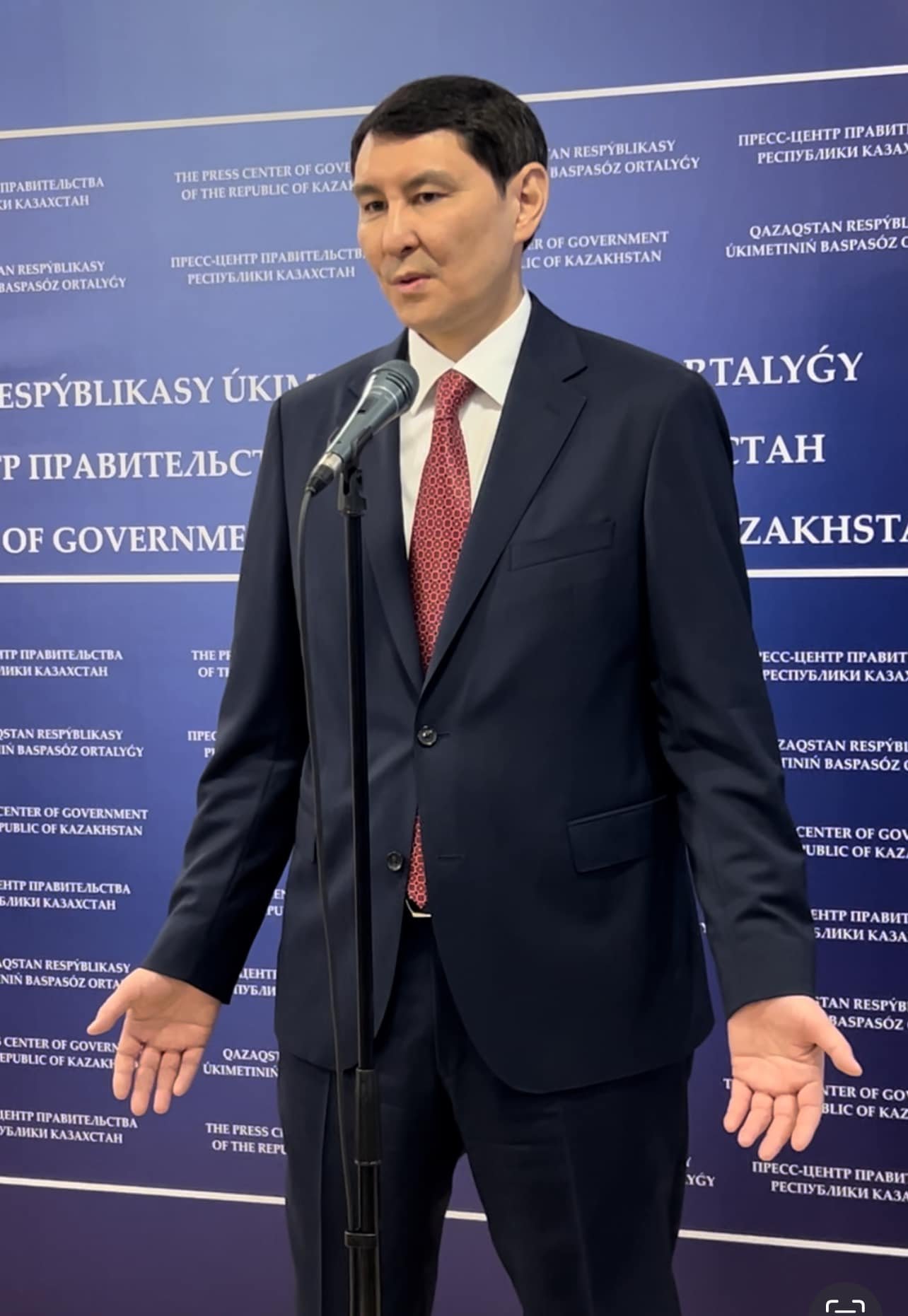
Quarantine
The coronavirus pandemic in 2020 can be considered a conditional starting point for the current predicament. The authorities have always swept the press aside; quarantine would allow them to coop everyone up. All government sessions, the Majilis, the Senate, press conferences, courts, and other events became online events.
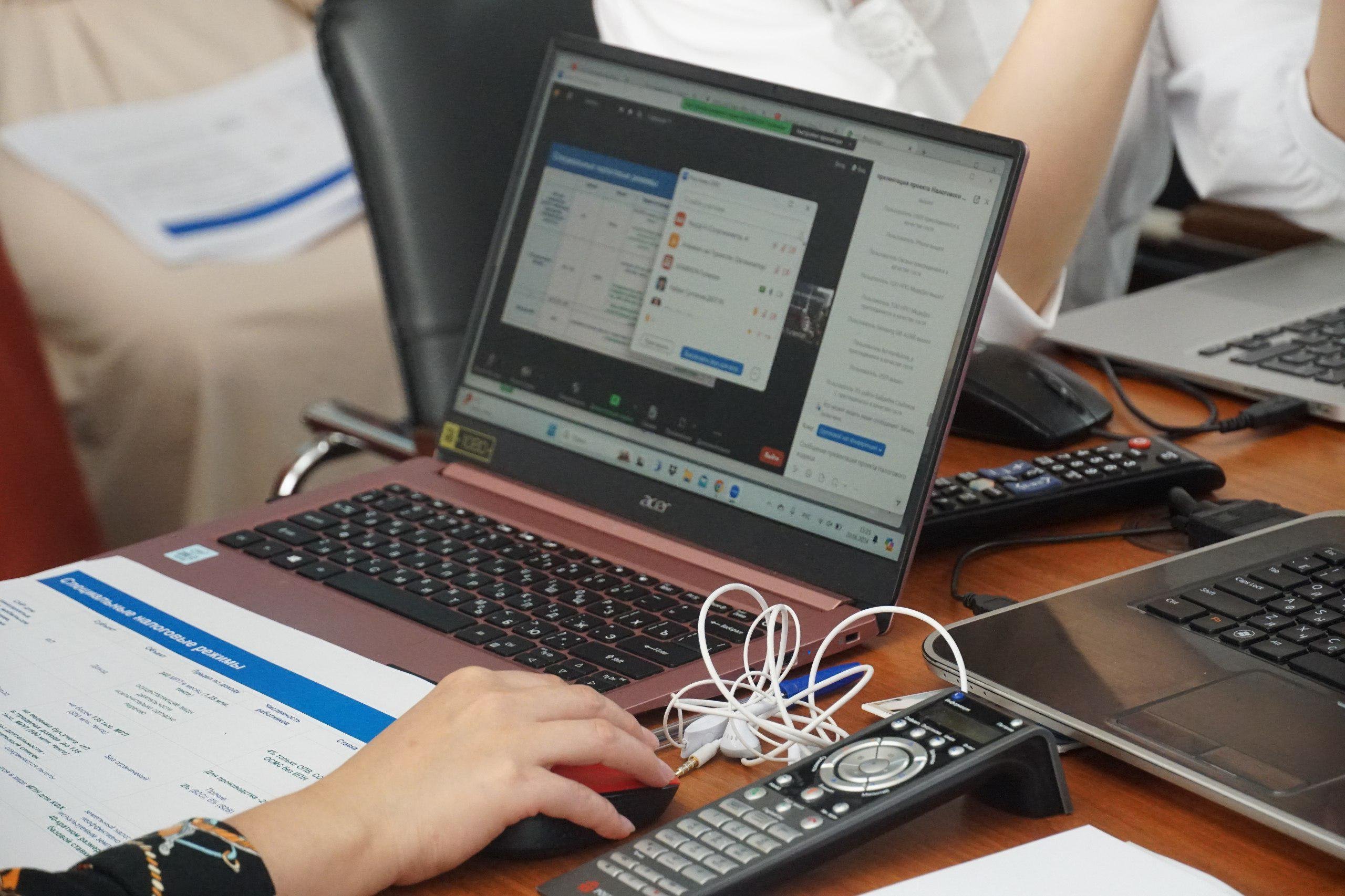
There was not much choice. Notwithstanding certain flaws, journalists had access to information. But quarantine ended, and it dawned upon officials that a journalist being on Zoom is much more convenient than a journalist in person. Switching to a hybrid mode brought both convenience and limitations.
Basements
In April 2022, journalists had to move to a basement from the comfortable Senate press center on the second floor. The Internet worked poorly there, and it was difficult to leave. All sessions with deputies and officials have traditionally been on the first floor. Journalists quickly descending from the press center could catch them at the exit. It was impossible to do this quickly from the basement. Expressed dissatisfaction brought the old press center back.
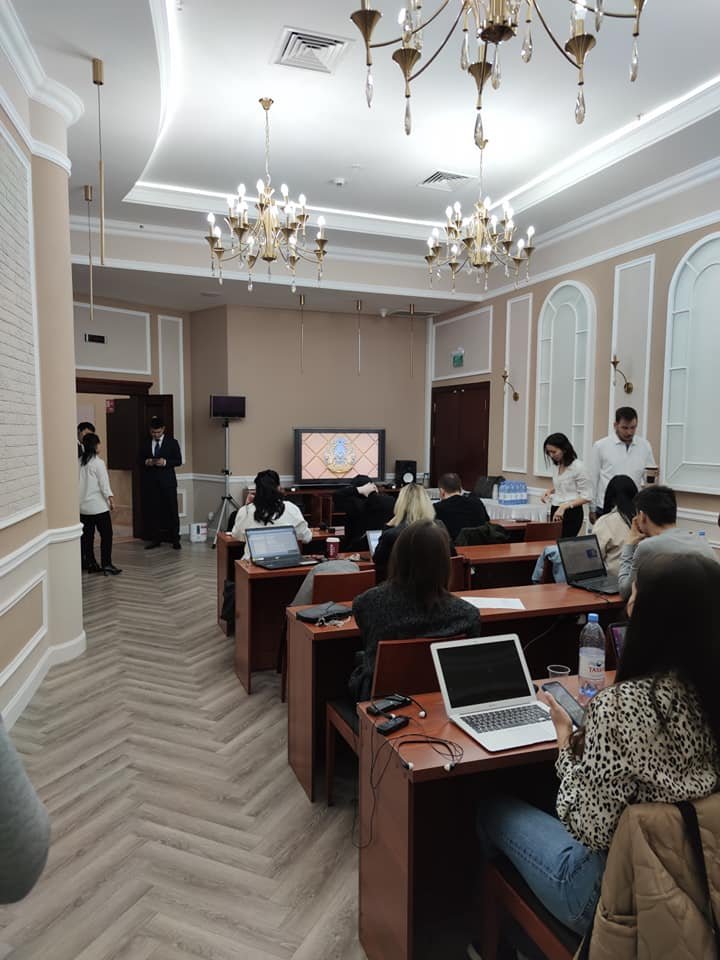
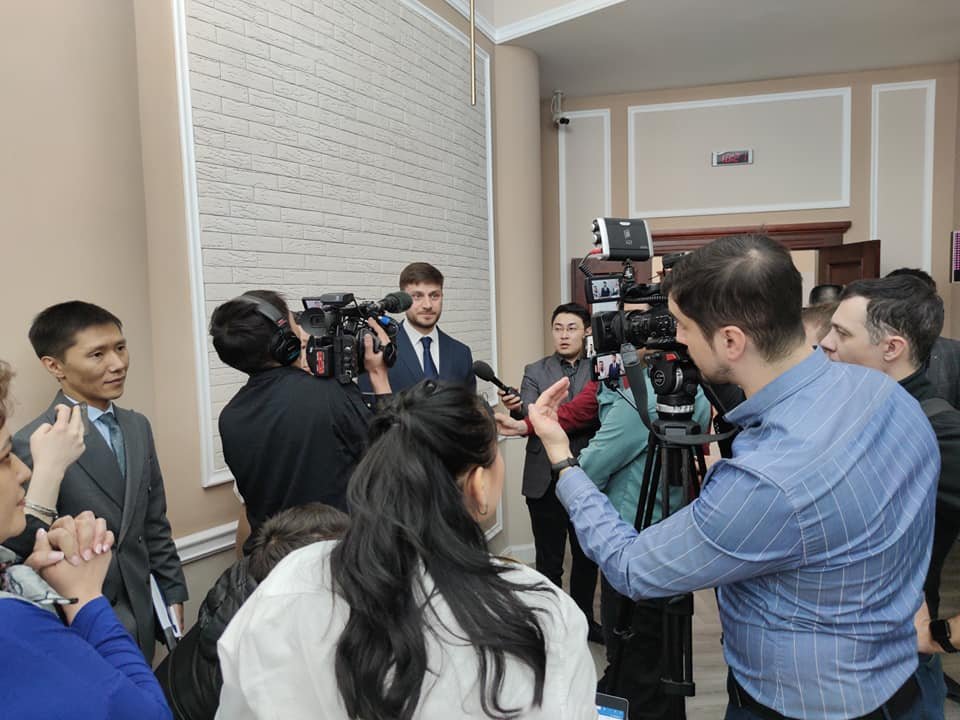
New Law on Mass Media and Accreditation Rules
The new law on mass media was adopted in 2024, but it was discussed for an extended period with the professional community, which fought to stop some of its provisions. For the most part, they succeeded. The clauses on press cards, accreditation, and higher education were removed from the final version of the new law.
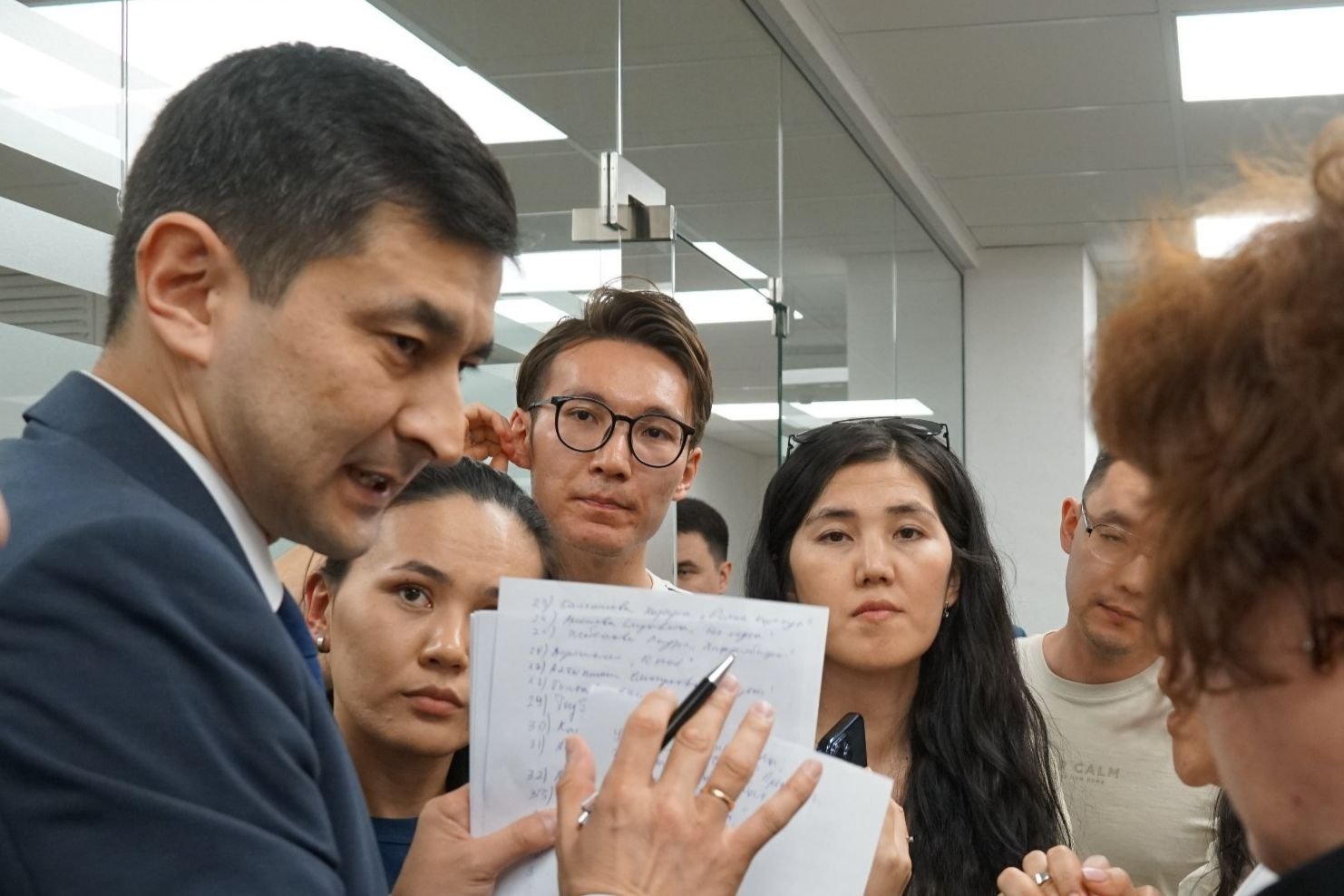
After an unsuccessful attempt to pass its innovations, which would have allowed almost any inconvenient journalist to be quickly silenced, the Ministry of Information found a workaround. In the summer of 2024, a draft order on new rules for media accreditation appeared on the Open NPA website. The authorities slipped in many parameters whereby journalists could lose the right to perform their professional duties.
Accredited journalists must now disseminate information exclusively through the media outlets where they have been accredited, restricting journalists' freedom to act and independent work.
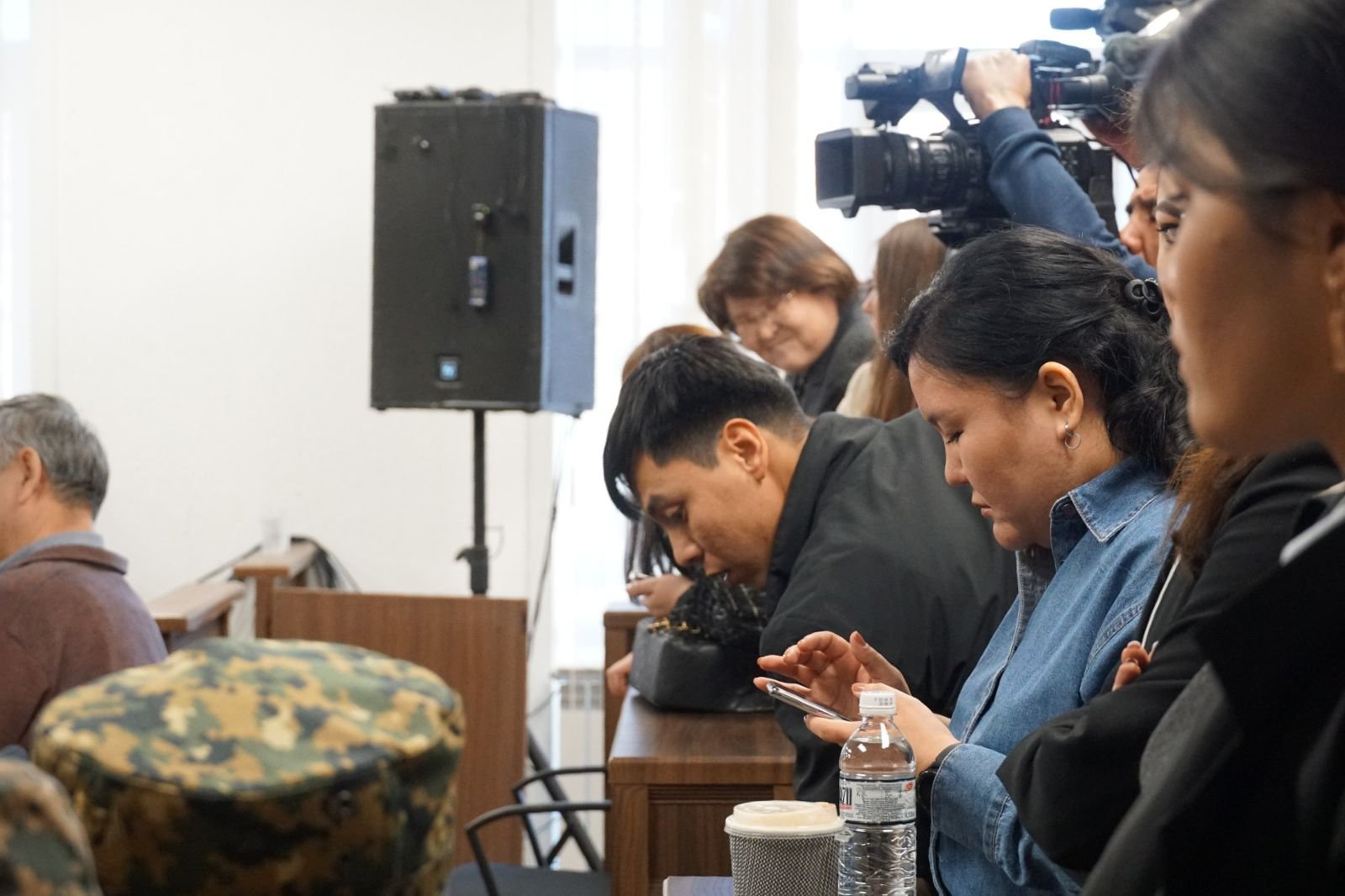
Compliance with an event's regulations held by the accrediting organization is also specified. Each organizer can design said regulations, such as not asking questions that are not related to the event's topic.
Such measures caused a response from the professional community, and journalists addressed the Minister of Culture and Information, Aida Balayeva. She received an initiative group of media representatives at her department, listened to their comments, wrote them down, and promised to look into it. A month later, all the proposed norms were implemented practically unchanged.
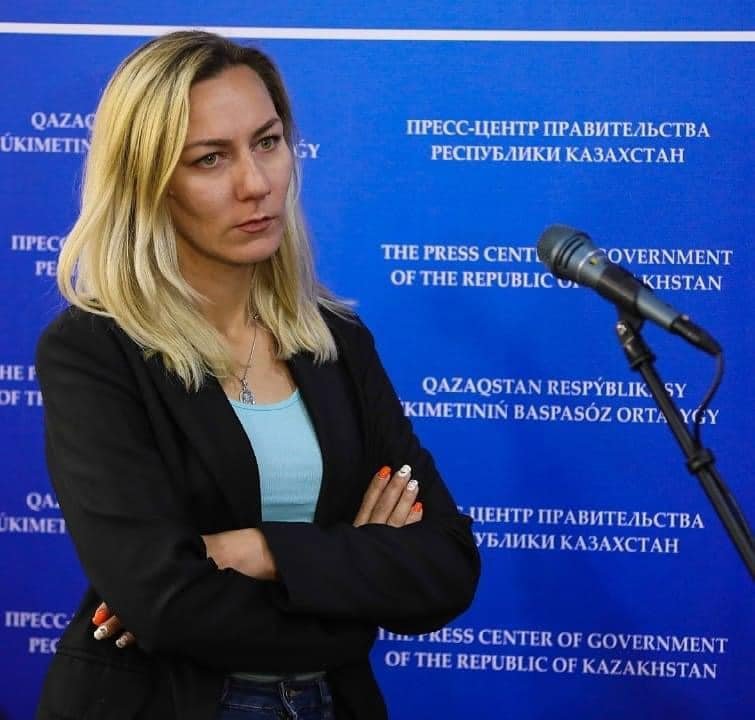
Well, colleagues, I "congratulate" us all on the de facto ban on the profession from the Ministry of Culture and Information. Aida Balayeva signed the standard rules for journalists, according to which we can lose accreditation for violating the regulations two or more times. They listened to us but did not consider it necessary to hear us, wrote Tamara Vaal, a Vlast.kz journalist on Facebook.
The Committee to Protect Journalists also expressed concern over the regulations, stating recent changes to Kazakhstan’s domestic media accreditation regulations and proposed changes to foreign media accreditation could be used to silence critical journalists:
New and proposed amendments to Kazakhstan’s accreditation regulations are excessive and open too many doors to censorship. Instead of the greater openness promised by President Tokayev’s ‘New Kazakhstan,’ what journalists are really getting is ever more creeping state control,” said Gulnoza Said, CPJ’s Europe and Central Asia program coordinator. “Kazakh authorities should heed journalists’ legitimate complaints and revise the media accreditation rules.
There is, however, an amendment that allows for an appeal against an unlawful refusal of permanent accreditation.
Meanwhile, Minister of Information Aida Balayeva would later comment on the accreditation regulations on 02 September 2024:
I believe that there are no restrictions, and there will not be any. Secondly, any document of a government agency, including the Ministry of Culture and Information, undergoes legal review. This means that all norms, all points comply with the Constitution and do not contradict the laws. There are some innovations that, I know, do not sit well with you. But here I want to say that all government agencies are interested in covering their activities. Therefore, I believe there is no need to dramatize here. As a minister, I told you and promised that I would promote in every possible way a dialogue between the media and government agencies,said Aida Balaeva.
Journalists noted that the accreditation rules contain “draconian” measures against those who violate them — they can lose accreditation for six months.
And what does a week of deprivation of accreditation give, tell me? After all, we must learn to work together. You talked about the ethics of civil servants, we are talking about the ethics of journalists. In general, they must be observed. By both sides. I am not fencing off, I am not defending my colleagues. I am also interested in you receiving complete information and, most importantly, helpful information, the minister added.
She also stated that sometimes journalists behave improperly.
When we see that we are practically moving away from the topic of briefings, and in fact we have briefings, press conferences are moving to some other planes altogether. There are moments when civil servants insult. Or there is improper behavior on the part of journalists. Here, of course, this needs to be regulated, said Balaeva.
The journalists asked what improper behavior meant, as journalists should sometimes ask uncomfortable questions:
Pardon me, but this does not mean pushing, it does not mean that some people fall. Let's consider each case separately, said Balaeva.
At the same time, there is currently no mechanism for punishing civil servants in such a manner:
In general, it does not paint a political civil servant in a good light to treat media representatives rudely. I think my colleagues understand this well. Maybe there are some emotional (moments. — Ed.), but this is inexcusable. I say again, every civil servant must observe ethics, respect the individual, people, and be interested in covering the activity. (...) Let's consider that today is a new countdown. I will be the arbiter between journalists and civil servants, said Aida Balayeva.
There were attempts to adopt similar regulations in 2019, before quarantine, Qantar, and other recent misfortunes that have befallen our country. The media was able to defend their right to attend official events at that time.
Back to The Basements?
Previously, the press center was on the same floor where cabinet meetings were held. Although the room was not ideal, it was functional. Journalists moved freely around the floor, stopped ministers, and asked them questions before and after the meetings. But freedom, apparently, became a nuisance. Only those officials who made reports had to attend sessions.
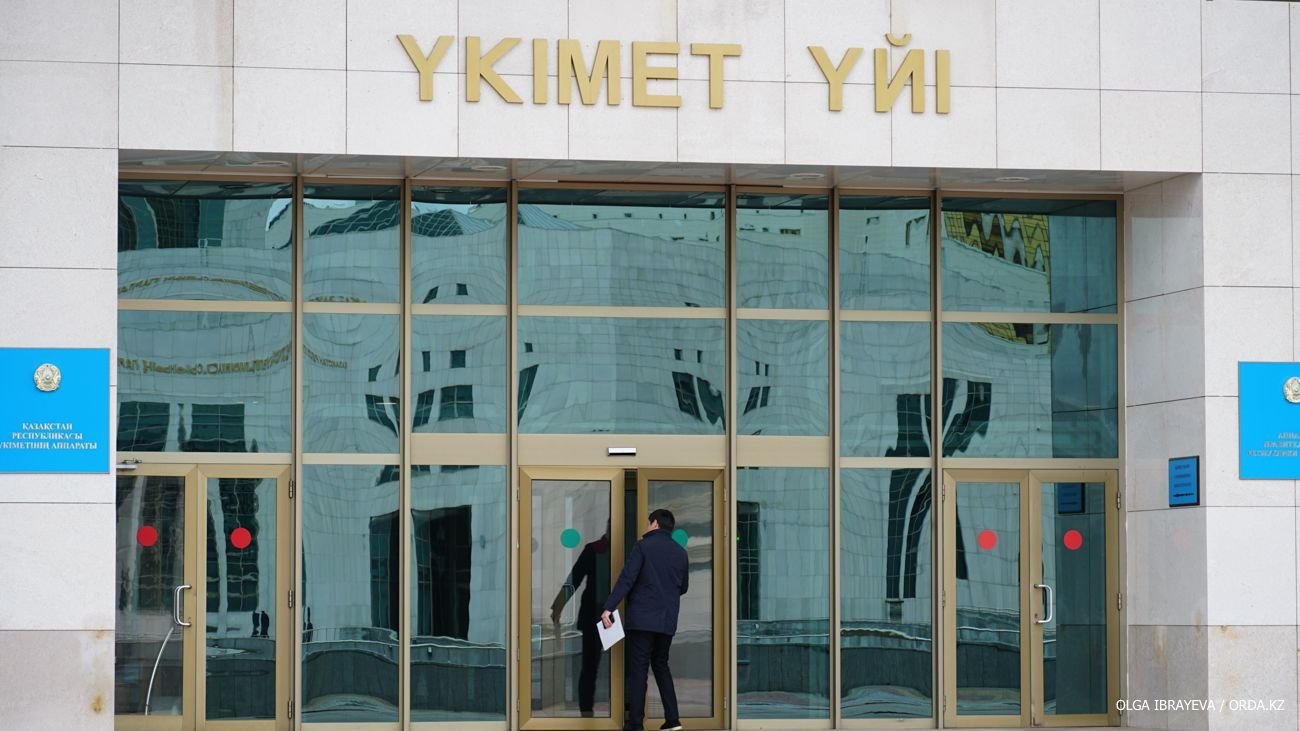
However, they would still attend the official press conference and answer questions calmly, providing some organization. The opportunity to ask everyone a question capable of answering topical questions concerning Kazakhstanis was still lost.
Then, they gradually forbade running up to those just walking down the corridor.
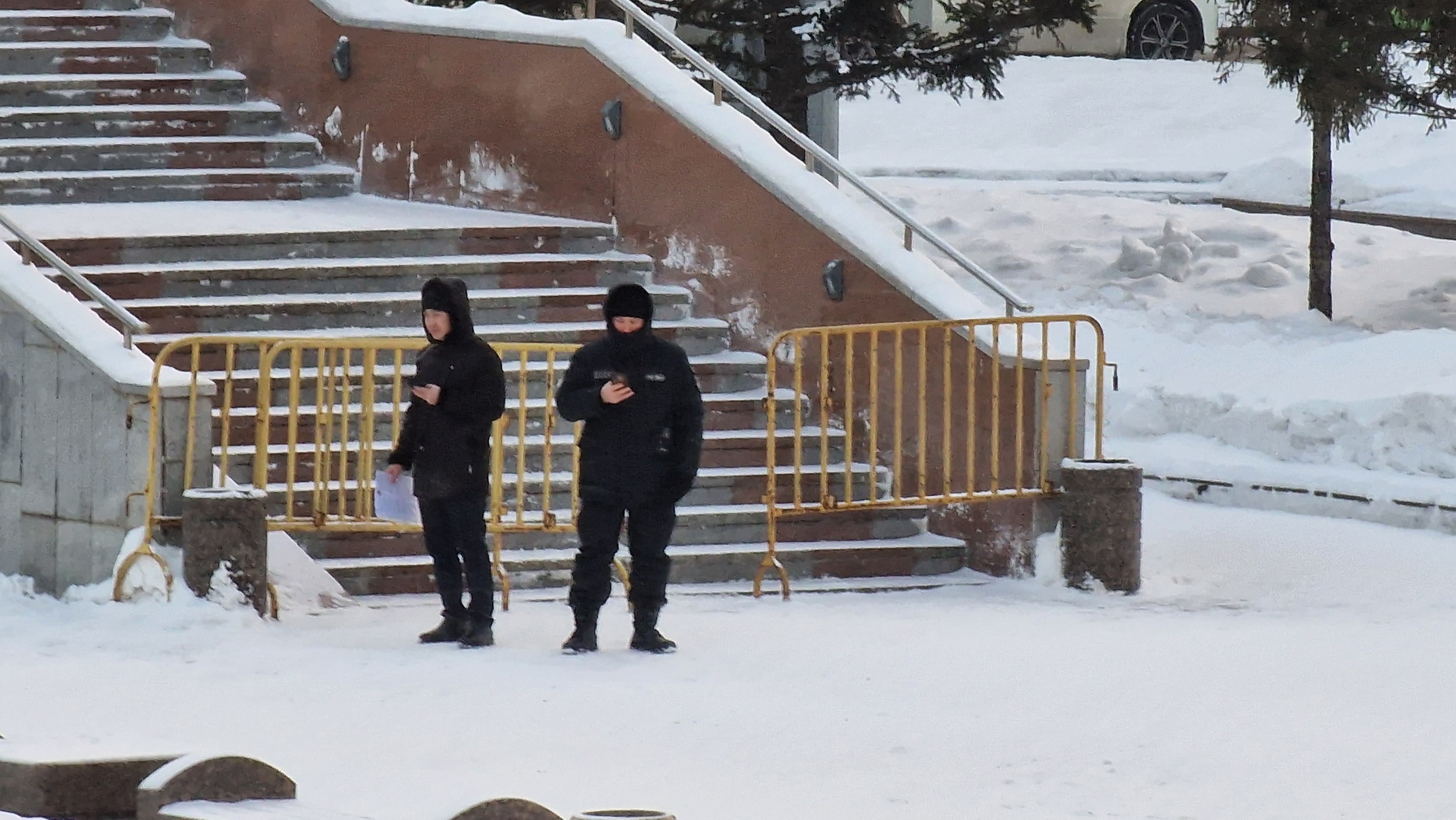
Last week, journalists were moved to a new press center on the floor below and banned from going to the third floor altogether. Given all the security measures, not just anyone can enter the government building. After Qantar, reaching the square in front of Aqorda and the government has become no easy task. The pedestrian area is now a high-security area where armed personnel are on duty 24 hours a day and check everyone's documents (journalists have work IDs).
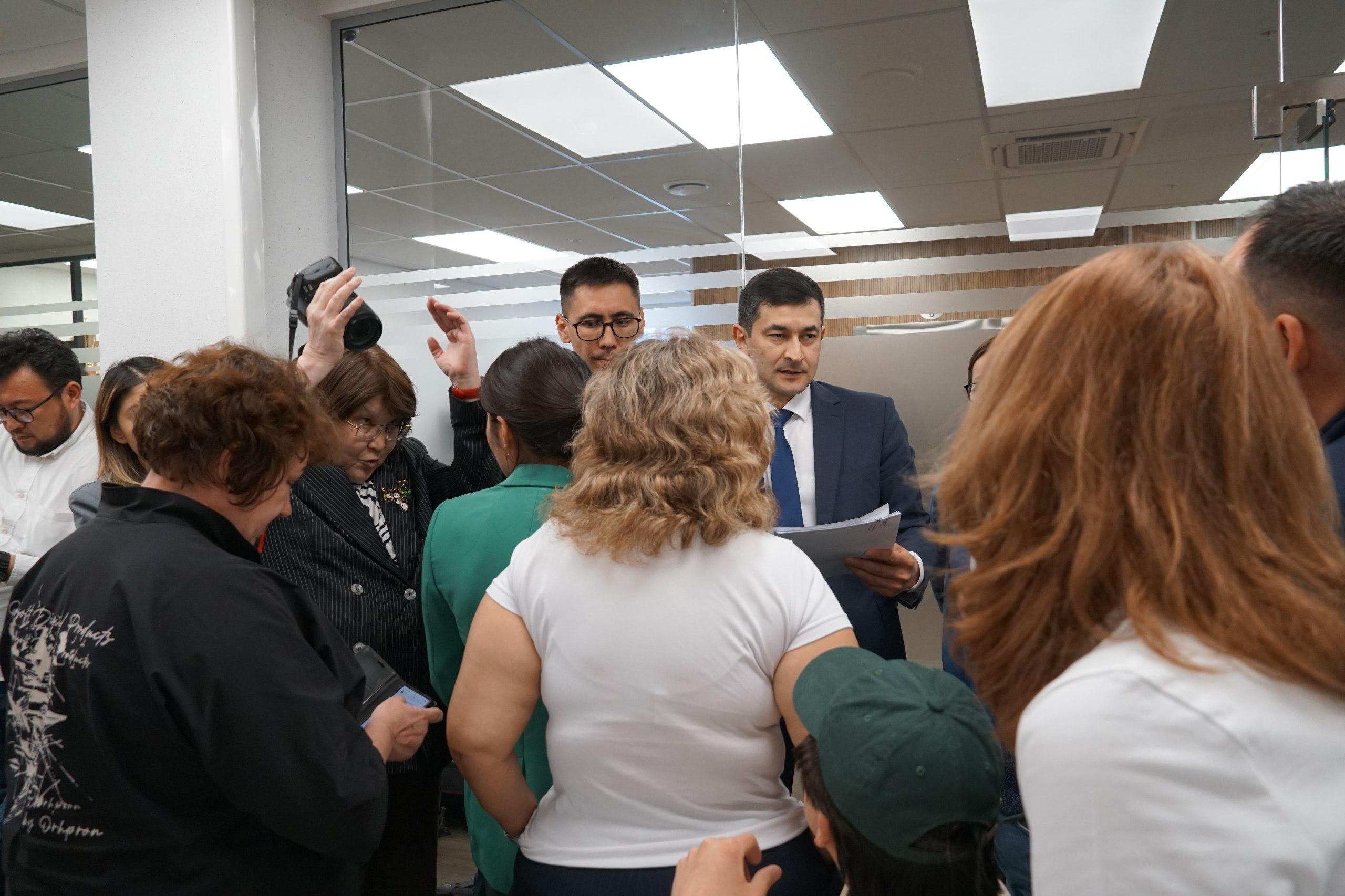
Officials do continue to come out for press conferences after government meetings, and the new press center is much nicer than the old one.
Why Is This Concerning?
The opportunity to directly ask a question to any official is our legal right and professional duty. Still, every year, those obliged to answer these questions carve out and reduce these opportunities. Access to government "VIPs" is not available every day and not anywhere, yet journalists are still fighting for access.
The authorities initially limited us at the legislative and organizational levels; now, they infringe on our rights even in everyday activities. This trend has long been emerging and gradually chips away at freedom of speech in Kazakhstan. And Kazakhstan and Kazakhstanis will only lose from this.
Original Author: Ilya Astakhov
DISCLAIMER: This is a translated piece. The text has been modified, the content is the same. The article has been updated to reflect the situation as of 06/08/24. For accuracy, please refer to the original article in Russian dated 30/08/24.
Latest news
- FSB Employees Reportedly Detained in Police Operation at Sputnik Office in Baku
- Kazakhstan: Law Banning Face-Covering Clothing in Public Receives Presidential Signature
- President Signs Law on Territorial Defense
- Kazakhstan: AntiKor Offers Reward for Information on Fugitive Ex-Judge
- Almaty Region Official Accused of Land Fraud
- Former Justice Minister Beketayev Sentenced to Nine Years in Prison
- Kazakhstan Merges Anti-Corruption Agency into National Security Committee
- Kazakh Human Rights Activist Claims Surveillance in Montenegro, Investigation Underway
- Kazakh Prosecutors Send Perizat Kairat's Fraud Case to Court
- New Transport Minister Receives Instructions
- Russian Comedian Living in Kazakhstan Accused of Inciting Ethnic Hatred By Russian Authorities
- Digital Nomad Residency: One Applicant Shares Experiences of Bureaucracy and Technical Glitches
- Lavrov Asserts Kazakhstan and Russia In Contact Over Claimed UAV Flight Over Republic
- Health Ministry Not to Pursue Legal Action Over SAC Audit Report
- Week In Review: Arrests, Sentences, Appointments, and More...
- From Corruption to Classrooms: What Happened to Kairat Satybaldyuly’s Seized Assets
- Former KTZ Head Nurlan Sauranbayev Appointed Kazakhstan’s Minister of Transport
- Indian Developer to Invest $500M in Medical University and Hospital Projects in Kazakhstan
- Drought and Delays: Talgar District Farms Struggle Without Irrigation Water
- Verny Capital Sells RG Gold to China’s Zijin Mining Group

